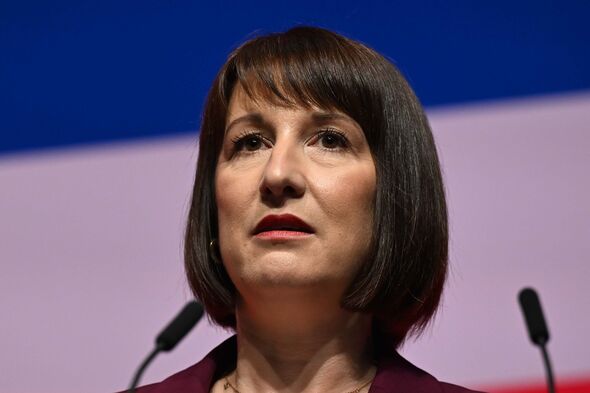Rachel Reeves: Bringing You the Financial Crash Revival Tour, 2024
Is Rachel Reeves About to Deliver the Sequel to Gordon Brown’s Pre-2008 Deregulation Disaster?
Ed Grimshaw
11/16/20244 min read


Just as the dust finally settles from the 2008 financial apocalypse, Rachel Reeves has announced her brilliant idea to cut down on that pesky “red tape” choking our financial sector. But hang on—haven’t we heard this tune before? It sounds suspiciously like Gordon Brown’s late-90s anthem of “light-touch regulation,” which, if memory serves, wasn’t exactly the roaring success it seemed to be at the time. Brown’s pre-2008 masterpiece of deregulation let the financial wizards run wild with dodgy loans, mortgage-backed misadventures, and credit-default sorcery, all of which ultimately crashed with the grace of a cow on ice.
So, is Reeves really suggesting we reenact this economic farce?
Why Are We Reviving the Very Red Tape That Once Held the Economy Together?
Reeves seems to think that “red tape” is little more than a nuisance, an annoying hindrance preventing bankers from unleashing their true creative potential. But let’s recall what this “tape” was actually holding together: the basic, sanity-saving boundaries that prevented financial firms from turning our economy into their personal casino. In the pre-2008 free-for-all, everyone from London to Las Vegas seemed to forget that risks are best enjoyed in moderation. Now, Reeves seems intent on reviving those carefree, heady days, leaving us to wonder if her real ambition is to bring back the financial crash revival tour, complete with a sold-out performance in the UK.
Should We Really Be Giving the Green Light to Less Accountability?
One of Reeves’ “innovative” ideas is to ease up on the Senior Managers and Certification Regime, which was put in place after 2008 to make sure financial executives couldn’t simply shrug their shoulders and bolt when their risky strategies blew up. In short, she’s suggesting we make it easier for these financial honchos to dodge accountability, as if it wasn’t already hard enough to pin down a banker who suddenly “can’t recall” who approved that toxic loan package.
Remember, Gordon Brown’s “light-touch regulation” essentially meant “trust the bankers to keep it in check.” And we all know how well that worked out. Yet Reeves appears to be asking, what’s the worst that could happen if we loosen things up a little more? Oh, nothing much—just the collapse of several major banks, a taxpayer-funded bailout, and maybe a housing crisis for old time’s sake.
Who Actually Thinks “More Risk” Is the Solution to Economic Stability?
Reeves has declared that she’s had quite enough of all this “risk aversion” and is determined to bring a bit of edge back into the economy. Apparently, the idea is that if we just inject a bit of extra risk, bankers will finally have the freedom to innovate! But isn’t that exactly what got us into trouble before? Back in the days when Gordon Brown was too busy polishing the reputation of London as the “world’s financial capital” to worry about what might be lurking beneath, bankers took risks with gusto, building towers of debt that toppled faster than a reality star’s PR career.
Reeves seems to think “risk” is a magic ingredient that will make our economy more dynamic. But let’s not forget, “risk” in financial jargon is often just a polite word for “gambling with other people’s money.” And when things go south, we know exactly who’s left footing the bill.
Are We Really Going to Reopen the Subprime Mortgage Playbook?
For those of us who remember the horror show of the last crash, the phrase “subprime mortgage” is about as welcome as an unsinkable Titanic replica. Yet Reeves’ deregulatory plans pave the way for precisely this sort of financial wizardry to make its grand return. With fewer regulations, we can practically expect the banks to jump right back into high-risk loans, collateralized debt obligations, and other Wall Street Frankenstein creations that nearly vaporized the global economy last time.
Are we seriously going to relive the days when banks handed out mortgages to anyone with a pulse, or in some cases, a well-trained pet? Reeves might dress it up as a path to economic dynamism, but we all know where this road leads—and it isn’t toward prosperity.
Will Reeves’ “Pro-Growth” Package Turn Out to Be a Pro-Banker Package?
At its core, Reeves’ pro-growth agenda sounds like a greatest-hits album of financial deregulation, just like the one Gordon Brown once released with disastrous reviews. She wants to unshackle financial managers, reduce their “burdensome” accountability, and encourage banks to ramp up their risk-taking, all in the name of growth. But if history has taught us anything, it’s that this isn’t so much a pro-growth strategy as it is a pro-banker one, offering more freedom for a select few at the expense of everyone else.
So, are we all just supposed to cross our fingers and hope that this time will be different? That the bankers who nearly imploded the global economy in 2008 have now become financial saints, somehow immune to the lure of reckless profits?
What Will Be Left for the Taxpayer to Bail Out This Time?
Let’s face it: Reeves’ deregulatory fever dream sounds like a direct line to a very familiar economic disaster. Gordon Brown’s deregulation left the nation scrambling to patch up a sinking financial ship, with the taxpayer picking up the tab. And now Reeves seems determined to steer us straight back to the same iceberg. So, if history is any guide, all we can do is sit back, prepare our wallets, and brace for another round of bank bailouts, economic “stimulus packages,” and mortgage meltdowns.
So, Rachel Reeves, we’re all ears: is your plan to revive the economy, or are we just getting a sequel to the Great Financial Crash, with an extra helping of deregulation and a generous side of déjà vu?
